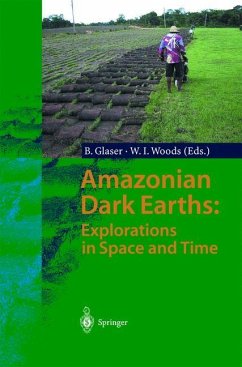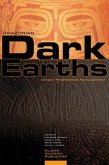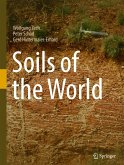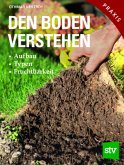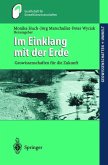The regenerative qualities identified in prehistoric, anthropogenic Amazonian dark earths suggest that notoriously infertile tropical soils can be greatly improved. Soil enhancement practices by ancient Amerindians allowed them to cultivate the land intensively, without needing to continually clear new fields from forest. As increasing populations place ever greater pressure on tropical forests, this legacy of rich, 'living' soils warrants further study in the search for high-yield, land-intensive, yet sustainable forms of management. The international group of contributors to this volume provides a variety of stances centering on aspects of the origin, distribution, variability, persistence, and use of Amazonian dark earths.
Hinweis: Dieser Artikel kann nur an eine deutsche Lieferadresse ausgeliefert werden.
Hinweis: Dieser Artikel kann nur an eine deutsche Lieferadresse ausgeliefert werden.
From the reviews:
"Concern for the environmental health of Amazonia is at the forefront of current international environmental issues. ... Even more uncommonly discussed is the existence of 'dark earths,' the subject of this book. ... Coverage ranges from a review of the literature to discussion of appropriate methodology. ... the book is well written and an excellent resource on this topic. ... it will be valuable for all academic libraries and useful to a wide range of readers in natural resources and even in anthropology. Summing Up: Recommended." (M.G. Messina, CHOICE, Vol. 42 (5), January, 2005)
"Concern for the environmental health of Amazonia is at the forefront of current international environmental issues. ... Even more uncommonly discussed is the existence of 'dark earths,' the subject of this book. ... Coverage ranges from a review of the literature to discussion of appropriate methodology. ... the book is well written and an excellent resource on this topic. ... it will be valuable for all academic libraries and useful to a wide range of readers in natural resources and even in anthropology. Summing Up: Recommended." (M.G. Messina, CHOICE, Vol. 42 (5), January, 2005)

